Phenyl-4-aminosalicylate
- CAS NO.:133-11-9
- Empirical Formula: C13H11NO3
- Molecular Weight: 229.23
- MDL number: MFCD00007788
- EINECS: 205-092-8
- SAFETY DATA SHEET (SDS)
- Update Date: 2024-12-18 13:37:16
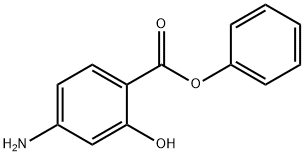
What is Phenyl-4-aminosalicylate ?
Chemical properties
WHITE POWDER
Originator
Pheny-Pas-Teb-Amin ,Purdue Frederick, US,1959
The Uses of Phenyl-4-aminosalicylate
Antibacterial(tuberculostatic).
The Uses of Phenyl-4-aminosalicylate
Phenyl 4-Aminosalicylate is a reactant in the synthesis of p-aminosalicylic ester imines with antitubercular activity.
Definition
ChEBI: 4-amino-2-hydroxybenzoic acid phenyl ester is a carbonyl compound.
Manufacturing Process
183 g of p-nitrosalicylic acid are dissolved in 564 g of phenol by heating to 140°C to 150°C on an oil bath. When all the p-nitrosalicylic acid is dissolved, 153 g of phosphorus oxychloride are run in, drop by drop, over a period of about 2 hours, while maintaining the temperature at about 150°C. The still warm mixture is run into 2 liters of water with agitation. The precipitate formed is filtered off, washed with water until phenol is removed and then dried.
There are thus obtained 250 g of 2-hydroxy-4-nitrophenylbenzoate which melts at 154°C to 155°C.
In a hydrogenation autoclave are introduced 92 g of 2-hydroxy-4nitrophenylbenzoate preceded by 200 cc of ethyl acetate; Raney nickel, obtained from 30 g of alloy, is added with 300 cc of ethyl acetate. Hydrogenation under pressure (100 to 120 kg) at ordinary temperature is carried out during a period of about 12 hours. The nickel is filtered off and the ethyl acetate is removed by distillation on the water bath under a vacuum of 300 mm. There is thus obtained 80 g of crude damp 2-hydroxy-4amnophenylbenzoate which after recrystallization from isopropyl alcohol melts at 153°C.
brand name
Pheny-Pas-Tebamin (Purdue Frederick).
Therapeutic Function
Antibacterial (tuberculostatic)
Metabolism
Not Available
Purification Methods
Crystallise the ester from EtOH (m 155o, also 149-150.5o), aqueous EtOH (m 147-149o), or isopropanol. It is tuberculostatic.[Beilstein 13 IV 1979.]
Properties of Phenyl-4-aminosalicylate
| Melting point: | 150-152 °C(lit.) |
| Boiling point: | 371.13°C (rough estimate) |
| Density | 1.2084 (rough estimate) |
| refractive index | 1.5500 (estimate) |
| storage temp. | -20°C Freezer |
| solubility | DMSO (Slightly), Methanol (Slightly) |
| form | Solid |
| pka | 8.76±0.10(Predicted) |
| color | Off-White |
| CAS DataBase Reference | 133-11-9(CAS DataBase Reference) |
| EPA Substance Registry System | Phenyl 4-aminosalicylate (133-11-9) |
Safety information for Phenyl-4-aminosalicylate
Computed Descriptors for Phenyl-4-aminosalicylate
New Products
(S)-3-Aminobutanenitrile hydrochloride 4-Methylphenylacetic acid N-Boc-D-alaninol N-BOC-D/L-ALANINOL Tert-butyl bis(2-chloroethyl)carbamate 3-Morpholino-1-(4-nitrophenyl)-5,6-dihydropyridin- 2(1H)-one Furan-2,5-Dicarboxylic Acid Tropic acid 1-Bromo-3,5-Di-Tert-Butylbenzene S-2-CHLORO PROPIONIC ACID ETHYL ISOCYANOACETATE 2-Bromo-1,3-Bis(Dimethylamino)Trimethinium Hexafluorophosphate 4-IODO BENZOIC ACID 3-NITRO-2-METHYL ANILINE 1-(2,4-DICHLOROPHENYL) ETHANAMINE (2-Hydroxyphenyl)acetonitrile 4-Bromopyrazole 2-(Cyanocyclohexyl)acetic acid 4-methoxy-3,5-dinitropyridine 1-(4-(aminomethyl)benzyl)urea hydrochloride 2-aminopropyl benzoate hydrochloride diethyl 2-(2-((tertbutoxycarbonyl)amino) ethyl)malonate tert-butyl 4- (ureidomethyl)benzylcarbamate Ethyl-2-chloro((4-methoxyphenyl)hydrazono)acetateRelated products of tetrahydrofuran

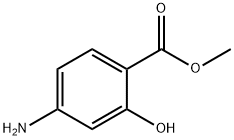
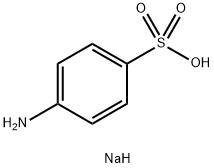
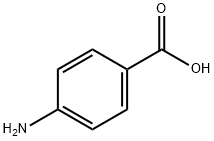
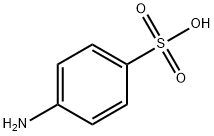
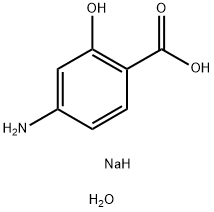
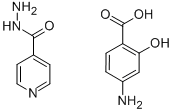
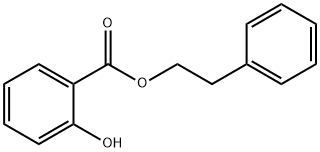
You may like
-
 2033-24-1 98%View Details
2033-24-1 98%View Details
2033-24-1 -
 42831-50-5 5-METHYLISOXAZOLE-4-CARBOXYLIC ACID 98%View Details
42831-50-5 5-METHYLISOXAZOLE-4-CARBOXYLIC ACID 98%View Details
42831-50-5 -
 1975-50-4 98%View Details
1975-50-4 98%View Details
1975-50-4 -
 2-HYDROXY BENZYL ALCOHOL 98%View Details
2-HYDROXY BENZYL ALCOHOL 98%View Details
90-01-7 -
 2-Chloro-1,3-Bis(Dimethylamino)Trimethinium Hexafluorophosphate 221615-75-4 98%View Details
2-Chloro-1,3-Bis(Dimethylamino)Trimethinium Hexafluorophosphate 221615-75-4 98%View Details
221615-75-4 -
 61397-56-6 CIS BROMO BENZOATE 98%View Details
61397-56-6 CIS BROMO BENZOATE 98%View Details
61397-56-6 -
 14714-50-2 (2-Hydroxyphenyl)acetonitrile 98+View Details
14714-50-2 (2-Hydroxyphenyl)acetonitrile 98+View Details
14714-50-2 -
 118753-70-1 98+View Details
118753-70-1 98+View Details
118753-70-1